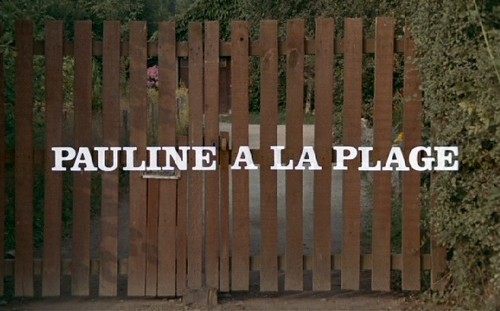
Eric Rohmer's Pauline a la Plage has a nice sense of theatricality about it, which comes from the centrality of the dialogue, and the downplaying of visual style. The swinging gate of the beach house operates as a velvet curtain, framing the narrative and isolating it within this sun-soaked Eden. Having set the stage, Rohmer has only to set up the camera and let the comedy of errors unfold. This styling is anything but passive, though, as the hapless young people are strategically grouped within the frame. The camera is often static, allowing the characters to wax poetic about the intricacies of love, as if delivering soliloquies on a stage.
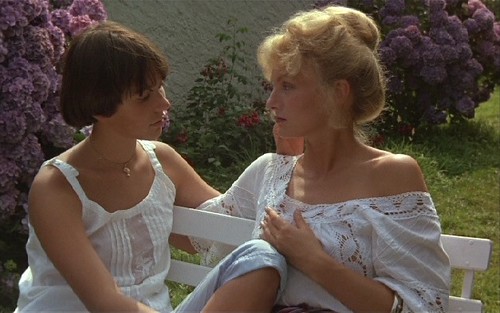
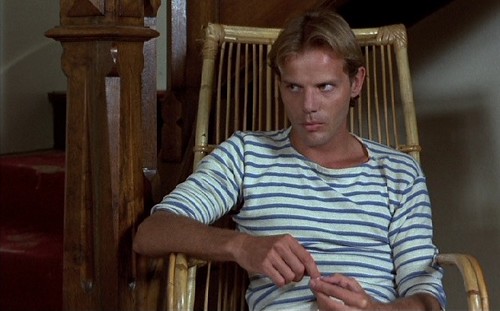
Rohmer uses this particular set of acquaintances thrown together on a beach-side tableau to explore the difficulties of relationships between men and women, and the elusive meaning of love in its myriad definitions. The set-up is as follows: Marion (Arielle Dombasle) brings her 15 year old cousin, Pauline (Amanda Langlet) to the beach, where she encounters an old friend, Pierre (Pascal Gregory). By chance, Pierre is responsible for introducing Marion to Henri (Feodor Atkine), an aging playboy, who catches her eye. What follows is a love triangle, in which love is wholly unrequited. Pierre loves Marion, Marion loves Henri, and Henri loves no one.
The three images below are all derived from one long, un-cut scene, in which Marion and Henri maneuver around his beach house together.
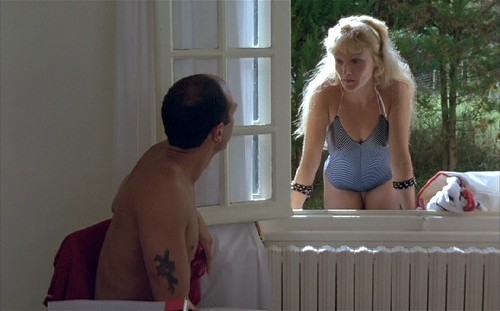
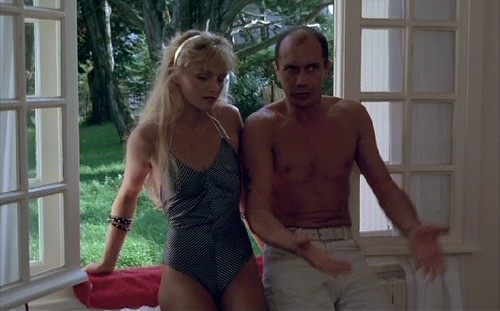

Every character in this film has a different philosophy on amour, although all are convinced, almost naively so, of its truth. No one seems to doubt that true love is possible, despite the fact that not one of them shares the same definition of what it is. Because of this, the film becomes a catalogue of failed relationships and failed communications, particularly between the two sexes. Recently divorced, Marion is the saddest character. In her lengthy oration on love, what she describes is, essentially, love at first site, a fiery swell of passion shared equally by two people. But this is hardly what she experiences during her encounter with Henri. Pierre, hopelessly infatuated with her, believes more in a safe kind of companionship, a friendship that blossoms. Henri wants a love that will not tie him down, thus, he seems to be doomed to move between women, endlessly. This doesn't seem to bother him too much, though, since his first love seems to be himself.
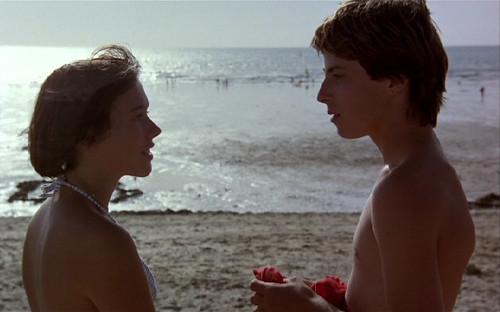
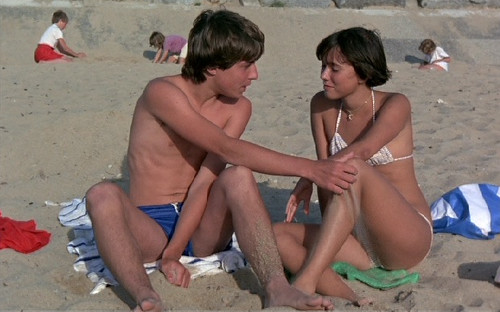
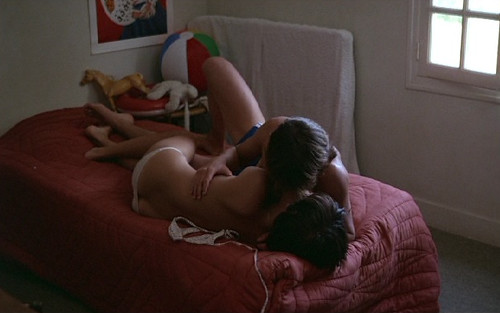
At the outset, Pauline is indifferent towards love. After listening to each member of the party outline in intricate detail what love is to them, Pauline undermines them all by reminiscing about her first love, a boy of 8 years. Ironically, this relationship is about as meaningful as those that unfold on the beach-side. Pierre's jealousy warps him into a petulant child; Marion's naivete is much like that of a young girl awaiting her prince, and despite his age, Henri continues to cavort without thought of consequence or responsibility. Pauline and Sylvain (Simon de la Brosse) share the least dysfunctional bond, probably because neither one is looking for anything but fun. Here, love is its own language, and Rohmer's characters lack the vocabulary that might enable them to explore its subtleties. And as is often the case, where love is concerned, each character tends to speak his or her own language, entirely.

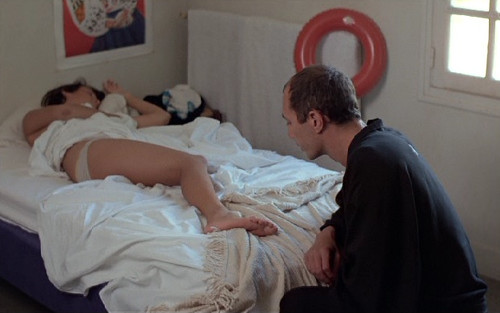

At the end, we are left with the gate, once more, as Pauline and Marion drive off, leaving this self-contained episode of their lives behind them. As Pauline closes the gate she opened on the way in, there is a sense that she is sealing off the events that have taken place there, perhaps locking away a piece of the former innocence that she has left behind. Once she has shut the gate, Marion lays out two alternate endings for the way the events could have unfolded, one outcome favoring each of them in turn. As Marion and Pauline leave the beach, two different truths leave with them, creating two more iterations in the endlessly idealized narrative that is love.


mmorpg oyunlar
ReplyDeleteİnstagram Takipçi Satın Al
TİKTOK JETON HİLESİ
tiktok jeton hilesi
antalya saç ekimi
referans kimliği nedir
instagram takipçi satın al
Metin2 Pvp Serverler
Instagram takipçi
en son çıkan perde modelleri
ReplyDeleteNUMARA ONAY
mobil ödeme bozdurma
nft nasıl alınır
ankara evden eve nakliyat
dedektör
Web Site Kurma
Ask Romanlari
Good text Write good content success. Thank you
ReplyDeletemobil ödeme bahis
tipobet
slot siteleri
betmatik
kralbet
kibris bahis siteleri
poker siteleri
bonus veren siteler
karabük
ReplyDeletekaraman
giresun
kastamonu
antep
WOOH
https://saglamproxy.com
ReplyDeletemetin2 proxy
proxy satın al
knight online proxy
mobil proxy satın al
51D7P7
شركة تنظيف بالقطيف jRMNV8SLGI
ReplyDeleteشركة تسليك مجاري بالخبر W01RVVkBTO
ReplyDeleteخدمات تنظيف وصيانة الأفران المنزلية
ReplyDeleteOQRCwYYEMCW